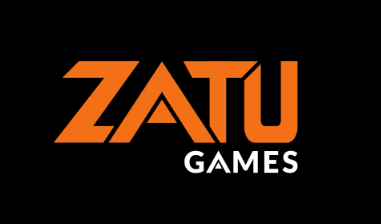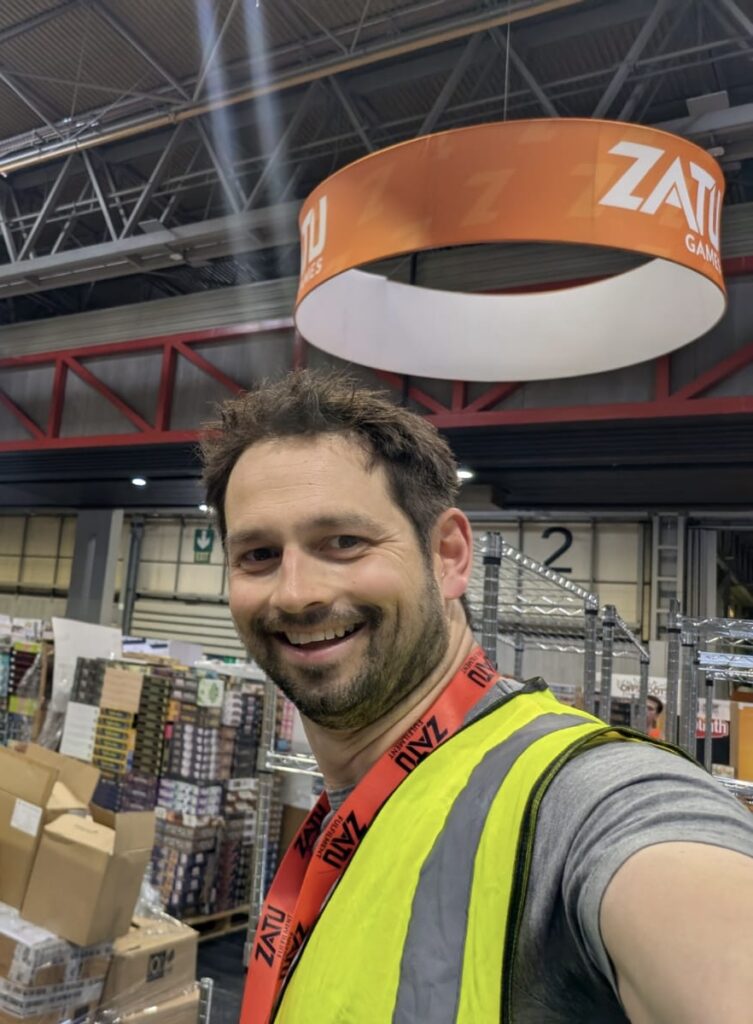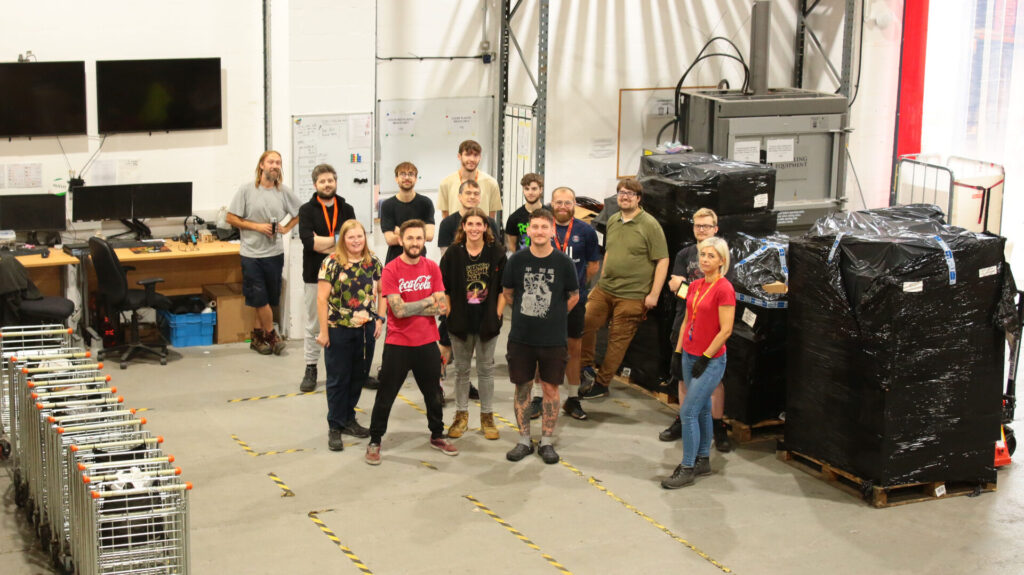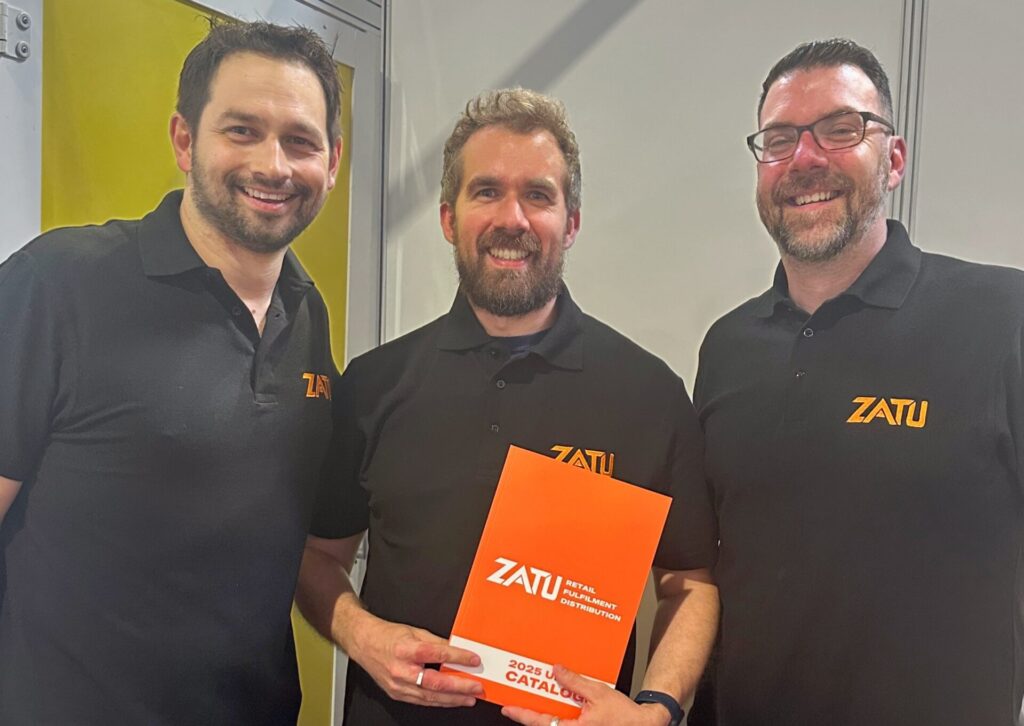
Board game retailer Zatu Games denies exploiting low-paid apprentices, ‘toxic’ work culture claims after wave of online criticism
One of the UK’s biggest board game retailers, Zatu Games, has moved to fend off a wave of online criticism claiming it exploits low-paid apprentices and runs a toxic ‘hire-and-fire’ culture in its growing warehouse operation.
Zatu has been hit with a spate of reviews over the past few months slamming the business on jobsite Indeed, where it posts adverts for its warehouse roles, as well as on workplace review website Glassdoor and via a series of excoriating Reddit posts, which have since been deleted.
Those reviews allege a range of poor practices at the company, including abuse of the UK’s apprenticeship program, which allows companies to bring in staff on less than the regular minimum wage – as little as £7.55 per hour – in order to provide training and support for their future employment.
Multiple reviews and online posts claim Zatu runs an exploitative revolving-door operation with its apprentice staff, bringing them in on low wages and overworking them while providing little useful training, before letting them go in order to bring on new apprentices and begin the cycle again.
Those claims were emphatically denied by Zatu’s commercial director David Budd, who spoke at length to BoardGameWire about the stream of recent criticism in the company’s first public acknowledgement of the situation. That Q&A interview is presented in full below this article.

Budd, the brother of Zatu CEO and co-founder Simon Budd, said, “We take our apprenticeship programme seriously – it’s one of the most important ways we offer people a genuine entry point into the tabletop and board game industry, which can otherwise be difficult to access, and we’re proud to help bring fresh talent into the sector.
“An apprenticeship is, by its very nature, a fixed-term programme. It provides a year to 18 months of hands-on experience alongside structured learning, mentoring, and regular feedback, but it doesn’t automatically guarantee a permanent role at the end. That’s true across most businesses who offer apprenticeships.”
He added, “We adhere strictly to the rules of the scheme, and if apprentices weren’t receiving the desired training and development from our programmes, we would be struck off from the scheme.
“Many apprentices are kept after the scheme, but this isn’t a requirement of it. We would welcome any apprentices who feel they’ve been let down by their experience at Zatu to contact us – we genuinely want to do right by those who trust us with their future and their career. These schemes are strictly governed, with apprentices meeting their training provider on a monthly basis.”
Budd told BoardGameWire that about 9% of its 76 employees are currently on apprenticeships, and added that its apprentices “are, and always have been, paid above the minimum wage set by the government, and there are opportunities to increase this throughout their apprenticeship as they gain more skills”.
Similar criticism has been levelled at Zatu from former workers claiming it also runs a ‘hire-and-fire’ strategy for its other warehouse staff, as well as making unrealistic demands for how many orders employees can pick within an hour. A string of other recent complaints have accused Zatu of bringing in temporary staff for busy periods such as Christmas under the pretence they were being hired for longer-term roles – again, something Budd and Zatu forcefully denied.
Budd told BoardGameWire that although seasonal temp workers skew Zatu’s turnover figures, 69% of its staff from June last year remained employed by the company 12 months later – above the 58.4% average for retail and wholesale reported by HR-focused professional standards organisation the Chartered Institute of Personnel Development, which uses data from the UK’s Office of National Statistics.
He said that its seasonal roles are “clearly labelled as a casual contract, not a permanent one”, but added: “However, we understand that some applicants may have felt that the job advert was unclear, and we appreciate the reviews that highlighted this.
“We apologise to anyone who felt let down – and we’re genuinely grateful for the feedback. We don’t see it as an indictment of our practices, but rather as an opportunity to improve them.”
Budd continued, “Like all retailers, we bring in a significant number of seasonal workers during the Christmas season. All seasonal workers take part in a paid operational interview where they are fully health and safety trained, taught how to do the job, and trial it for three days.
“At the end of that trial, those that like the job and are a great fit with the team are offered the role. Obviously, some opt not to continue with the role (retail warehouse work isn’t for everyone).
“At the end of the Christmas period, we unfortunately need to reduce warehouse staff numbers back to normal levels, so lose a proportion of these new colleagues – but we try where we can to find roles for those that want to stay.
“From the last Christmas cohort, we hired 12 of the 40 temporary warehouse staff into permanent roles, including three based in the office.”
He added, “It’s regretful that often at the end of the season we have to let go of great people who we’ve loved having as part of the team, and understandably those staff are often frustrated by this – and as a consequence, it can lead to negative reviews.
“We’ve done this nine times in our company lifecycle, and each year we iterate on our staffing and processes. Seasonal expectations are consistently one of the biggest challenges that retail companies face, and whilst we freely admit that we still don’t get everything right, we improve on this every year and we look forward to taking the feedback from last time round and doing it better next time round.”
Budd confirmed that the claim made online that Zatu warehouse staff are expected to pick 120 units per hour was accurate, but said the figure was not outside of industry standards for e-commerce warehouse work, and that the company’s warehouse management software was “built to make this a very achievable target”.

He said, “Pickers follow optimised routes with no backtracking. Popular items are stored in multiple locations to allow for the shortest picking routes based on the proximity of other items in the same orders. The software also prioritises accessible items, manages travel distances and routes, and reduces the need to reach high shelves.
“That’s why many of our pickers can exceed 200 units per hour – for example, one pickwave might simply involve placing 50 copies of a game into a cage to be packed. That could take five minutes and would give an effective picking speed of 600 units per hour.
“Clearly, not all pickwaves are this efficient, but experienced pickers can regularly achieve 200 units per hour, with the target for most staff being a very achievable 120.”
He added ,”Outside of the initial trial shift, where being able to meet this picking target is part of demonstrating good team fit, no member of the warehouse team has been dismissed for failing to meet 120 units per hour in at least the last two years.”
Budd acknowledged to BoardGameWire that in addition to the recent spate of negative employee reviews, other online criticism from former workers stretches back several years – something he ascribed to the company’s faster-than-expected growth and unexpected challenges caused by the Covid-19 pandemic.
The reviews mean Zatu is currently rated 3.3 out of 5 on Glassdoor, and 3.8 out of 5 on Indeed. The Glassdoor data shows that 53% of Zatu employees who have contributed to the site would recommend the company to a friend, while only 49% approve of CEO Simon Budd, who co-founded the business with his wife Treena in 2016.
David Budd told BoardGameWire, “Much of our nine-year history coincided with the Covid pandemic, which brought rapid and unpredictable growth across the whole industry. That period naturally put pressure on our warehouse team, and we’ve learned a lot from it.
“Zatu has grown incredibly quickly – from a small startup that was born because our founder was frustrated that he couldn’t source a particular game in the UK, to becoming the largest independent board games company in the UK in less than a decade.
“As is common with a fast-growing business, sometimes the speed of expansion outpaced our short-term resourcing capacity, so we all had to roll our sleeves up to get things done.”
He added, “We fully acknowledge that reviews on sites like Indeed and Glassdoor have included criticism. While we don’t always agree with everything that’s said, we’re always disappointed if someone finishes their time at Zatu feeling negatively.

“We know that not every review will be five stars – but we also think it’s important to benchmark ourselves against similar retail and logistics companies. On that basis, we’re proud that Zatu consistently ranks higher on Indeed (our more active review site) than many of our peers, both in the board games sector and in the wider retail space.
“Much of the online criticism focuses on the Covid era. That was an extraordinarily challenging and uncertain time, and while we may not have got everything right, we stand by the efforts we made to keep our staff safe and our business alive.
“We’re proud that we were able to retain everyone who wanted to stay, only furloughing team members who volunteered. We never had a major outbreak, nor did we have to shut down our warehouse – and that’s a testament to the efforts of the team who worked together through a difficult period.
“Since then, we’ve benefited from more stable growth and deeper historical data, which has helped us improve capacity planning and put stronger support structures in place. For every negative post online, there are many long-serving team members at Zatu who have been with us for years and take genuine pride in their work.”
The recent criticism levelled at Zatu online comes amid the Norwich, UK company’s continued expansion from its hobby retailer roots into fulfilment and distribution.
Zatu began exploring fulfilment as long ago as 2019, with David Budd telling BoardGameWire, “We quickly realised we could offer more than just storage and shipping – our retail knowledge meant we could help identify sales opportunities, move stock fluidly between fulfilment and retail, and support successful launches.
“We’ve seen particularly rapid growth in this area over the last two years, with the creation of a dedicated fulfilment team to meet rising demand.”
He added, “It was through this work that distribution became the natural next step. Our fulfilment partners often asked if we could also help distribute their titles, and we recognised a gap in the market for a UK-focused, retailer-friendly distributor that truly understood the games and the audience.”
Zatu has been growing its distribution business since early 2024, and recently expanded into a 32,000 sq ft warehouse to help manage its increasing operations.
The company has so far secured distribution rights to games including Wonderbow Games’ Kelp: Shark vs Octopus, and titles from publisher Incredible Dream, including the Kinfire series and A Gentle Rain.
Zatu says it is already working with “a large number of game stores”, as well as major British bookseller Waterstones, which has become known in recent years for also stocking a wide range of modern hobby board games.
Rob Trounce, who joined Zatu as trade marketing manager in June after 18 months as Hachette UK’s head of marketing, said, “Because we’ve spent nearly a decade helping gamers discover the right titles, we know what works.

“Zatu Distribution is about giving retailers the confidence to stock future hits, and giving publishers the platform to succeed in the UK.”
David Budd added, “If our founding ambition was to bring a wider variety of games to the UK market, then everything we’ve done since – from retail, to fulfilment, to now distribution – is an extension of that mission.
“We’re always looking for ways to support the full breadth of the games industry and help great titles reach the players who’ll love them.”
Full Q&A with Zatu Games commercial director David Budd
BoardGameWire: Does Zatu recognise the negative warehouse work culture and operational procedures talked about in these Indeed and Glassdoor employee reviews? Were any of these working conditions ever the case, and are they the case now?
David Budd: No, we wouldn’t say that’s reflective of people’s experience at Zatu – but we appreciate that, like all companies, a small proportion of ex-staff have left negative reviews. Much of our nine-year history coincided with the COVID pandemic, which brought rapid and unpredictable growth across the whole industry. That period naturally put pressure on our warehouse team, and we’ve learned a lot from it.
Zatu has grown incredibly quickly – from a small startup that was born because our founder was frustrated that he couldn’t source a particular game in the UK, to becoming the largest independent board games company in the UK in less than a decade. As is common with a fast-growing business, sometimes the speed of expansion outpaced our short-term resourcing capacity, so we all had to roll our sleeves up to get things done.
Historically, during busy periods like the Christmas rush and Black Friday, some normally office-based team members were helping in warehouse roles on a temporary basis. This is no longer a common practice in the company – unless you’re a staff member who volunteers to go to UKGE – everyone stacks shelves at UKGE!
We appreciate everyone who gave their time and effort in those periods. We want to make sure every team member feels supported and valued – whether they’re in a warehouse, an office, or working remotely – and whilst the many who have been with us for several years of their career would attest to that being the case, we are sorry to those who felt let down by their experiences here. We have built additional internal communication channels to ensure all voices can be better heard and listened to. This feedback helps us to become a better company for both staff and customers. For example, based on staff feedback we implemented paid duvet days.
Today, Zatu has a core permanent warehouse team that has a low turnover. Most warehouse staff have been with the company for many years. Like all retailers, we bring in a significant number of seasonal workers during the Christmas season. All seasonal workers take part in a paid operational interview where they are fully health and safety trained, taught how to do the job, and trial it for three days. At the end of that trial, those that like the job and are a great fit with the team are offered the role. Obviously, some opt not to continue with the role (retail warehouse work isn’t for everyone). At the end of the Christmas period, we unfortunately need to reduce warehouse staff numbers back to normal levels, so lose a proportion of these new colleagues – but we try where we can to find roles for those that want to stay. From the last Christmas cohort, we hired 12 of the 40 temporary warehouse staff into permanent roles, including three based in the office.
As an ISO 9001 certified company, we are rigorously assessed by external auditors annually. A key requirement is competency – ensuring all staff are able to do their jobs well, and if they don’t have the right skills or qualifications, then we are required to provide them under the certification. Health and safety has always been a top priority, and we are incredibly proud that in a decade of operation we have only ever lost one day of work for an employee who was injured on our premises (they trapped their hand while carrying a desk). This isn’t to say we rest on our laurels – and this year, we have hired a dedicated, qualified health and safety trainer as a permanent member of the warehouse team. Similarly, ISO 9001 requires that our top-level management demonstrates commitments to the wellbeing of staff – something we always did informally, but this gave us the opportunity to formalise that process.
We take all the feedback we receive on Glassdoor, Indeed, and elsewhere seriously. Even though our average employee feedback scores on these platforms are actually considerably better than other companies in our industry and other companies that run large warehouses, that’s not an excuse to stand still. Our goal is to be a truly great place to work – we have a core team that is very stable and do all we can to make Zatu a fun and engaging environment to work in.
Just over three years ago, we moved into our new home, in which we’ve been able to put an increased focus on staff morale and happiness. The environment our staff work in is purpose-built by Zatu to be comfortable, open plan, and to create a fun work environment. Equally, the warehouses have been designed to mirror that approach, with breakout areas, games rooms, and staff kitchens. We don’t believe anyone would claim we’ve not provided a safe, comfortable, and enjoyable working environment – and we would welcome anyone who wants to take a look for themselves.
We’ll continue to listen, improve, and grow responsibly to ensure that’s always the case going forward too.
If Zatu doesn’t recognise the reality of the comments being made, can it speak to why it believes there have been so many, over such a significant amount of time?
Yes – we do acknowledge that negative reviews have been posted over time, and many reflect challenges we faced during rapid periods of growth and COVID. A number of those reviews, including some that have been discussed on forums like Reddit, date back to 2020–2021, before we had moved location. Furthermore, COVID led to unexpected changes in how we could run the company. We did our best at a time when every industry was having to be agile and work within shifting government guidelines and market expectations, whilst also ensuring our employees’ safety took precedence. There was no guidebook or blueprint, and we got some of our foresight wrong and made mistakes – speaking frankly, we expected the company to slow down, and instead it experienced a doubling in order volumes. Nonetheless, many of the staff who were with us during this trying time are still with us and reflect on that time as when we all came together as a team to overcome massive obstacles. We are forever grateful to them all.
Furthermore, as we have referenced above, the Christmas cohort of temporary workers we take on each year are often unable to stay on come January. It’s regretful that often at the end of the season we have to let go of great people who we’ve loved having as part of the team, and understandably those staff are often frustrated by this – and as a consequence, it can lead to negative reviews. We’ve done this nine times in our company lifecycle, and each year we iterate on our staffing and processes. Seasonal expectations are consistently one of the biggest challenges that retail companies face, and whilst we freely admit that we still don’t get everything right, we improve on this every year and we look forward to taking the feedback from last time round and doing it better next time round.
We would encourage anyone who’s interested to come and see our warehouse and office operations as they are today. We’ll be happy to have a cuppa in one of our staff kitchens, have a game of pool or ping pong in a breakout area, or enjoy some quiet reflection time in our prayer room. If it’s a hot day, then don’t worry – we have air-conditioning, and if needs be, you can charge your car for free like the rest of our staff. We can even grab some lunch from one of the food trucks that drop by each day! Transparency is important to us, and we believe seeing the day-to-day reality will give a fairer, more up-to-date picture of who we are and how we work.
You mention the nature of Christmas temp work as being behind some of the complaints. Several poor Indeed and Glassdoor reviews from the most recent Christmas claim Zatu advertised and took staff on before Christmas in full-time roles, but then quickly let them go as those roles were only ever intended as seasonal Christmas work. Are those reports accurate, and if so, why did that take place?
The role is clearly labelled as a casual contract, not a permanent position. However, we understand that some applicants may have felt that the job advert was unclear, and we appreciate the reviews that highlighted this. We apologise to anyone who felt let down – and we’re genuinely grateful for the feedback. We don’t see it as an indictment of our practices, but rather as an opportunity to improve them.
At the point of offering a trial shift, we make it clear that there’s no guarantee of a long-term role. That said, our team also works hard to motivate people – highlighting that if they’re a great fit, there’s often a chance to stay on. We don’t call these “Christmas temp” roles specifically because they aren’t just about covering the festive period – they’re about identifying strong team members for longer-term opportunities.
This past Christmas, for instance, 12 people were offered ongoing roles afterwards (three in the office, nine in the warehouse) – that constitutes around half of those who stayed through the season, and when asked wanted to say on in a full-time role. In many other cases, people weren’t seeking long-term work to begin with – such as students returning to university in January.
We’ve also made changes to improve clarity for future applicants:
- We’re updating the job advert wording to clearly state that while we often offer permanent roles after Christmas, there’s no guarantee of ongoing employment.
- We’ve moved the paragraph about casual contracts from the fourth paragraph to the second in our employment agreements, so it’s seen earlier. The clause will also be put in bold.
- We will now reinforce that message verbally when new starters begin.
There’s a repeated allegation that Zatu brings in apprentices on minimum apprentice wage, fails to train them for advancement, and then frequently lets them go within a year in order to avoid having to pay a higher wage and to bring in more low-paid apprentices. Is that a practice that has taken place at Zatu, and does it still take place now? How many apprentices are employed by the company currently? And can you provide figures for staff turnover across the company over the past couple of years?
Zatu is proud to be a long-term supporter of the government’s flagship Apprenticeship programme. We take our apprenticeship programme seriously – it’s one of the most important ways we offer people a genuine entry point into the tabletop and board game industry, which can otherwise be difficult to access, and we’re proud to help bring fresh talent into the sector.
An apprenticeship is, by its very nature, a fixed-term programme. It provides a year to 18 months of hands-on experience alongside structured learning, mentoring, and regular feedback, but it doesn’t automatically guarantee a permanent role at the end. That’s true across most businesses who offer apprenticeships.
We feel privileged to have had the opportunity to retain numerous apprentices at the end of their apprenticeship – and a number of former apprentices have progressed into a long term career with us, including one person that did an apprenticeship with us in 2020 and is now one of six people on our senior leadership team. Another apprentice joined us in 2019 and is part of our eight-person strong management team. We also have numerous other examples of apprentices who are still with us after they successfully passed their apprenticeship.
Right now we employ 76 people in total, seven of whom are currently on the apprenticeship programme. With Norwich’s unemployment rate sitting at 4.8% – slightly above the national average of 4.6% – we see this as a chance to offer opportunities to young people keen to forge a career in tabletop gaming.
Our commitment is to pay fairly, offer real development and progression wherever we can, and continue improving our programme so that we help people build lasting careers in this industry. Our apprentices are, and always have been, paid above the minimum wage set by the government, and there are opportunities to increase this throughout their apprenticeship as they gain more skills. We have always been delighted by the large number of applicants that apply for apprenticeships at Zatu.
Apprenticeships are a fully government-backed scheme, and any apprenticeship is backed by a training provider too. We adhere strictly to the rules of the scheme, and if apprentices weren’t receiving the desired training and development from our programmes, we would be struck off from the scheme. Many apprentices are kept after the scheme, but this isn’t a requirement of it. We would welcome any apprentices who feel they’ve been let down by their experience at Zatu to contact us – we genuinely want to do right by those who trust us with their future and their career. These schemes are strictly governed, with apprentices meeting their training provider on a monthly basis.
In regard to our staff turnover: the seasonal temp workers skew these figures, but looking at our core permanent staff for the whole company – comparing June 2024 to June 2025 – of those staff employed in June 2024, at June 2025 we retained 69% of our employees. The CIPD statistics for staff turnover put the average retention 58.4% in the retail and wholesale sectors (taken using data from the Office of National Statistics).
There are also repeated claims workers are tasked with unrealistic expectations over how many orders they are expected to pick – 120 units per hour in one case. Is that an accurate figure for company expectations? Or can you provide a true figure?
Yes – 120 units per hour is our standard picking rate. This isn’t outside of industry standards for warehouse work in the e-commerce sector, especially when supported by appropriate warehouse technology.
Our Warehouse Management System is built to make this a very achievable target. Pickers follow optimised routes with no backtracking. Popular items are stored in multiple locations to allow for the shortest picking routes based on the proximity of other items in the same orders. The software also prioritises accessible items, manages travel distances and routes, and reduces the need to reach high shelves. That’s why many of our pickers can exceed 200 units per hour – for example, one pickwave might simply involve placing 50 copies of a game into a cage to be packed. That could take five minutes and would give an effective picking speed of 600 units per hour. Clearly, not all pickwaves are this efficient, but experienced pickers can regularly achieve 200 units per hour, with the target for most staff being a very achievable 120.
Our warehouse is ISO 9001 certified. Our targets are considered fair, and we have robust systems in place to support staff in achieving them – which they normally do. Outside of the initial trial shift, where being able to meet this picking target is part of demonstrating good team fit, no member of the warehouse team has been dismissed for failing to meet 120 units per hour in at least the last two years.
It’s also worth noting that picking is just one part of the warehouse role at Zatu. Most of our team members spend less than 10 hours per week picking. They also work on receiving deliveries, packing orders, managing stock and recycling, and handling other warehouse tasks. Staff can request full training on Bendi forklifts and equipment such as our compactors, which are used to separate coloured plastic, clear plastic, and waste cardboard – all of which are compressed into bales and sent directly to recycling plants.
We’re continuously reviewing our processes and targets to make sure they’re fair, safe, and appropriate for everyone involved.
How has Zatu managed the step up in staffing required to run the distribution business – can you provide figures for how many extra staff have been brought in, out of Zatu’s total, to run the new operation?
We have recruited 3.5 FTE office staff to launch our distribution operation, with plans to grow this team further as the business expands over the next 18 months. They are supported by our wider business functions – including HR, accounts, warehouse, and procurement – which may also see additional headcount added as the overall workload increases.
Crucially, we’ve recently expanded into our third warehouse, which primarily supports our fulfilment and distribution operations, while also providing overflow storage for retail stock.
By carving out a dedicated team and warehouse space, we’re ensuring that we have the capacity, focus, and expertise to build a distribution channel we can be proud of – one that retailers enjoy working with – while continuing to fully resource our retail and fulfilment teams.
Your press release detailing the new distribution business mentions ‘state-of-the-art warehouses’ with cutting-edge technology. Can you go into more detail about the nature of the technology, and what specifically makes the warehouses state of the art?
Zatu has invested heavily in its warehouse operations in recent years. While we don’t believe full automation is appropriate for the picking and packing of board games – due to their delicate, collectible nature – we have made significant investments in systems and software to reduce waste, streamline workflows, and optimise staff time across our retail, fulfilment and distribution channels. Our newest warehouse not only meets the standards of our existing operations – it’s also raising those standards further.
We operate a fully integrated warehouse management system (WMS) that links directly to marketplaces like Amazon, as well as to the websites of our fulfilment partners. This allows us to receive live order data and pass back real-time stock updates and parcel tracking information. The WMS also includes smart automation that alerts team leaders in real time to where staffing is most needed – for example, if a surge in incoming deliveries or customer orders occurs – enabling us to maintain smooth, responsive operations.
Our warehouse processes are fully Amazon Prime-certified and meet all related requirements, including strict due diligence and turnaround standards. Stock is transferred to outbound courier collection points using conveyor systems, ensuring speed and efficiency at scale.
Crucially, we’ve designed our new warehouse with people in mind. It features upgraded break areas, modern staff amenities, and training opportunities for every team member – including forklift licensing and upskilling in warehouse systems and sustainability practices. Our focus on automation is never about replacing people, but rather about removing the most repetitive tasks to allow staff to focus on more valuable and engaging work.
We’re also deeply committed to environmental sustainability. We’ve invested over £210,000 in solar panels across our warehouse and office buildings to draw as much of our energy as possible from renewable sources. We’ve also introduced a salary sacrifice scheme to help staff access electric vehicles, with free charging available onsite.
When it comes to packaging and waste, we adopt a circular approach wherever possible. A large proportion of our shipments are sent in reused boxes, and we make no apologies for that – if a box is a little ‘pre-loved’ but still protects your game, we think that’s a small and worthwhile trade-off for the environment.
We’ve also installed waste compacting machines to process cardboard and plastics into efficient bales, which we supply directly to local recycling centres – reducing both our environmental impact and the time our staff need to spend on waste management.
Whether it’s our WMS or our approach to sustainability, every decision comes back to three things: making Zatu a great place to work, reducing our environmental footprint, and delivering the best possible service to customers and retail partners alike.
If Zatu has had any problems in the recent past with working culture in the warehouse operation, it would be great to hear what those issues were, and what the company did to address them.
We’re genuinely proud of the culture we’re building every single day across the business, including in our warehouse teams. We do not accept that there is a current issue with warehouse culture, and the recent post on Reddit suggesting otherwise has upset many people in the company – especially those who work hard in the warehouse every day.
The majority of accusations circulating online appear to stem from events over five years ago, during the height of the Covid-19 pandemic. One more recent claim concerns our picking targets, which we believe to be a misrepresentation of how our processes work. That claim was made by someone who did not complete their trial shifts with us. On their first two days, they were within 10% of achieving our standard picking target, and we were optimistic that they would pass their trial. However, their performance dropped significantly over the next two days, down by almost half compared to their previous performance. When invited to discuss this, the individual left the business without speaking to anyone – and later posted about us online.
That aside, we fully acknowledge that reviews on sites like Indeed and Glassdoor have included criticism. While we don’t always agree with everything that’s said, we’re always disappointed if someone finishes their time at Zatu feeling negatively. We know that not every review will be five stars – but we also think it’s important to benchmark ourselves against similar retail and logistics companies. On that basis, we’re proud that Zatu consistently ranks higher on Indeed (our more active review site) than many of our peers, both in the board games sector and in the wider retail space.
Much of the online criticism focuses on the Covid era. That was an extraordinarily challenging and uncertain time, and while we may not have got everything right, we stand by the efforts we made to keep our staff safe and our business alive. We’re proud that we were able to retain everyone who wanted to stay, only furloughing team members who volunteered. We never had a major outbreak, nor did we have to shut down our warehouse – and that’s a testament to the efforts of the team who worked together through a difficult period.
Since then, we’ve benefited from more stable growth and deeper historical data, which has helped us improve capacity planning and put stronger support structures in place. For every negative post online, there are many long-serving team members at Zatu who have been with us for years and take genuine pride in their work.
We’ve backed this up with initiatives that are designed to improve the employee experience, including:
• A fortnightly working pattern, allowing colleagues to take every other Friday off.
• Several paid duvet days each year, which can be taken at short notice, no questions asked.
• A flexible working model, with just six core working hours per day, to support work life balance.
• Seasonal and temporary staffing to better manage workload spikes and avoid burnout.
• Breakout rooms and quiet spaces for rest, reflection, or a game of pool, table tennis – or of course, board games.
• Training and development programmes to support long-term career growth.
• An open-door policy – our senior leadership team is always accessible to all 76 of our staff.
• To further encourage open communication, we’ve introduced designated People’s Champions in both the warehouse and office teams. This gives staff a direct, informal, and anonymous way to raise concerns or share feedback if, for any reason, they don’t feel comfortable doing so with their line manager or HR.
We take all feedback seriously, and by listening, learning, and adapting, we believe we’re continuing to build a positive and supportive culture for everyone at Zatu.







[…] Az Egyesült Királyság egyik legnagyobb társasjáték-kiskereskedője, a Zatu Games, lépéseket tett annak érdekében, hogy elhárítsa az online kritika hullámát, amely szerint alulfizetett gyakornokokat kizsákmányol és mérgező „felvesz és kirúg” kultúrát működtet növekvő raktárüzemében.Ezeket az állításokat határozottan cáfolta Zatu kereskedelmi igazgatója, David Budd, aki a BoardGameWire-nak hosszasan beszélt a vállalat első nyilvános nyilatkozatában a közelmúltbeli kritikákról (BoardGameWire) […]
[…] Board game retailer Zatu Games denies exploiting low-paid apprentices, ‘toxic’ work cult… […]
[…] denied the accusations of a toxic workplace or the exploitation of its workforce. As reported by BoardGameWire, the company maintained that its apprenticeship programmes are a legitimate and valued part of its […]